
Simon Bornschier
@simonbornschier.bsky.social
However: Voters in the right field with less particularistic group identities continue to opt for the mainstream right, suggesting that accommodating the far right would likely entail additional losses for mainstream right parties.
6/7
6/7
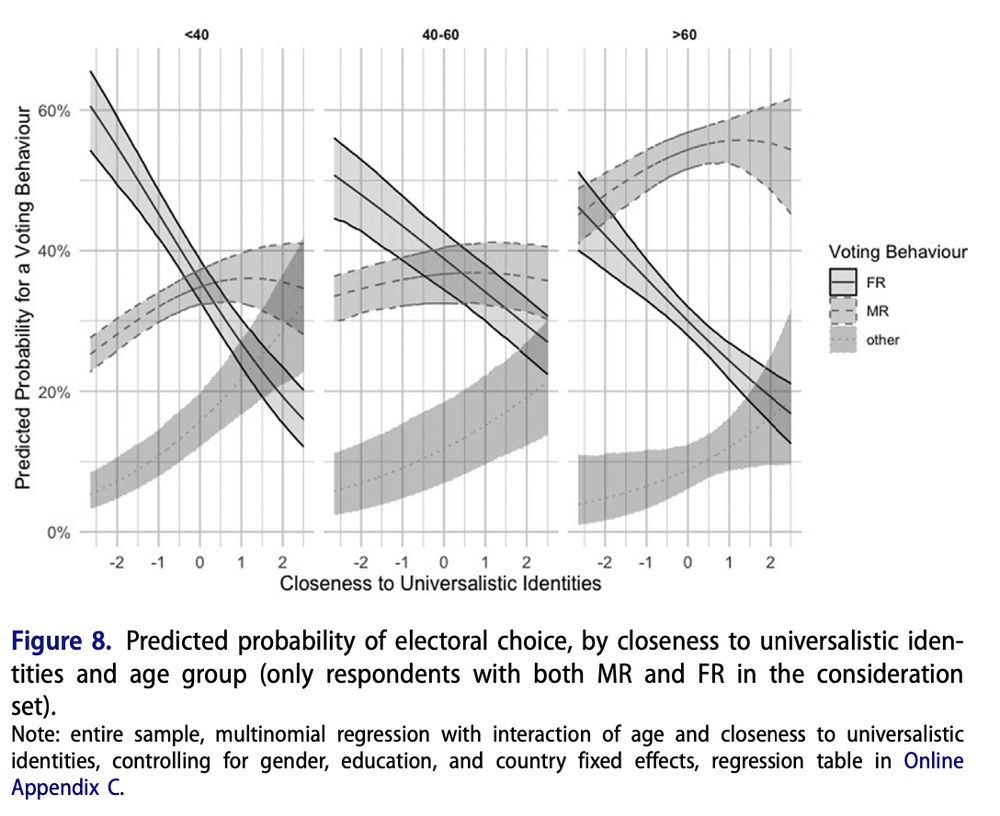
July 8, 2025 at 11:08 AM
However: Voters in the right field with less particularistic group identities continue to opt for the mainstream right, suggesting that accommodating the far right would likely entail additional losses for mainstream right parties.
6/7
6/7
And among those voters who hold BOTH far and mainstream right parties in their consideration set, how salient economic-distributive issues are to them (relative to socio-cultural questions) explains actual choice only among the elderly.
IOW: the segmentation of the right field is eroding.
5/7
IOW: the segmentation of the right field is eroding.
5/7
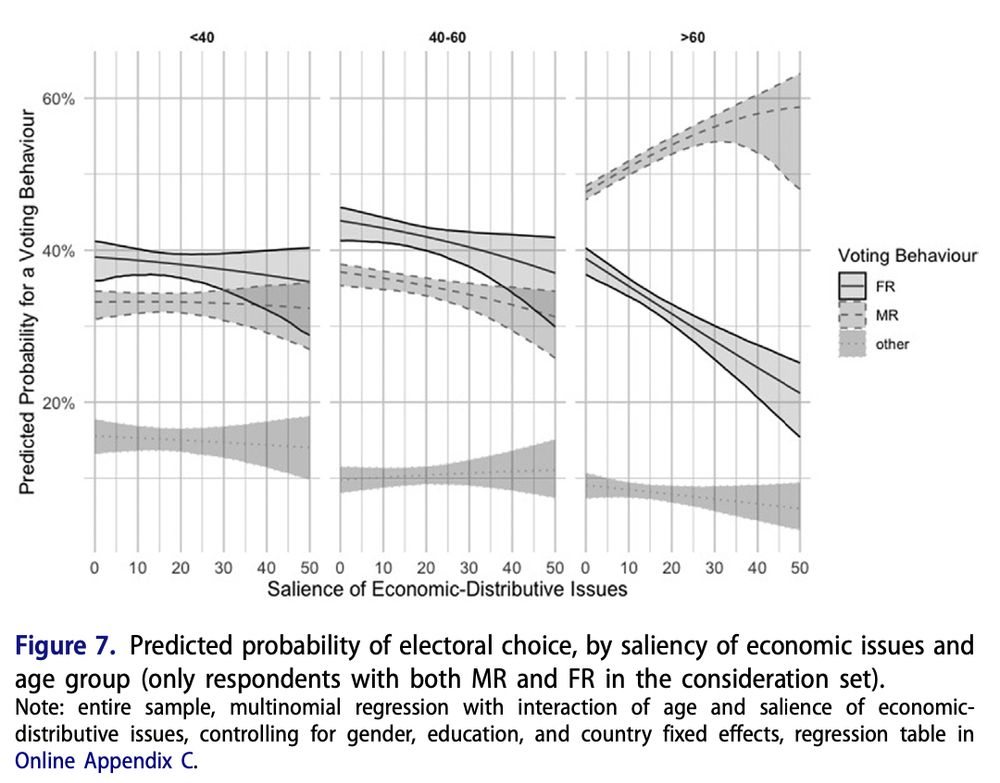
July 8, 2025 at 11:07 AM
And among those voters who hold BOTH far and mainstream right parties in their consideration set, how salient economic-distributive issues are to them (relative to socio-cultural questions) explains actual choice only among the elderly.
IOW: the segmentation of the right field is eroding.
5/7
IOW: the segmentation of the right field is eroding.
5/7
More surprisingly – and reason to worry for these parties – the mainstream right has lost its dominant position even among those younger voters…
• for whom economic-distributive issues are most salient and…
• who hold higher social status identities.
4/7
• for whom economic-distributive issues are most salient and…
• who hold higher social status identities.
4/7
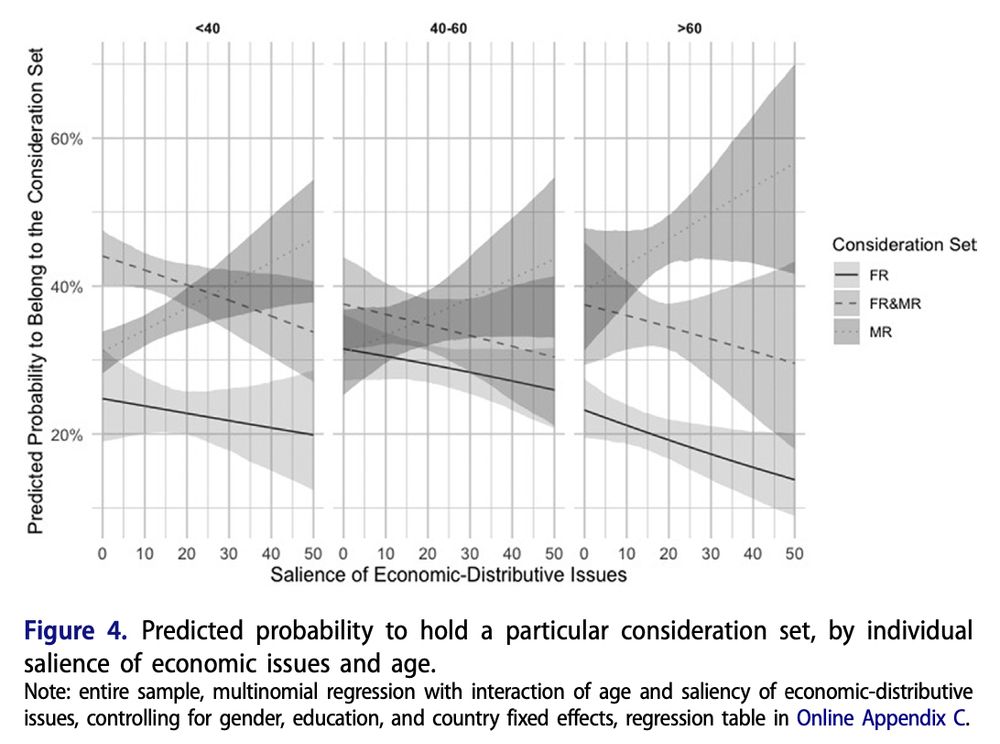
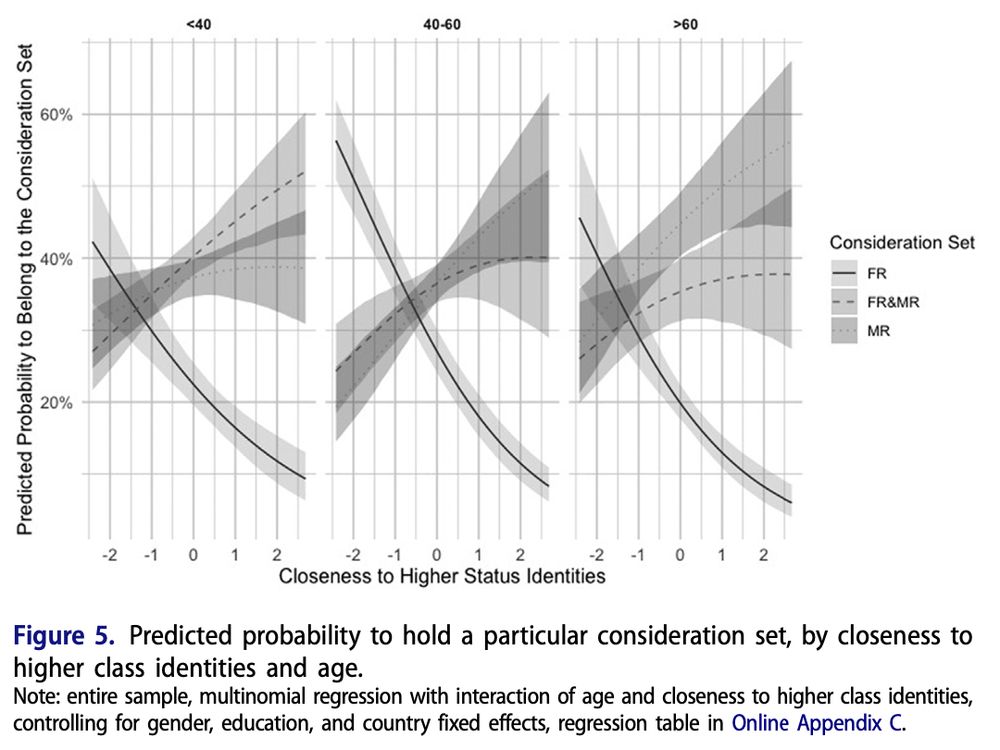
July 8, 2025 at 11:07 AM
More surprisingly – and reason to worry for these parties – the mainstream right has lost its dominant position even among those younger voters…
• for whom economic-distributive issues are most salient and…
• who hold higher social status identities.
4/7
• for whom economic-distributive issues are most salient and…
• who hold higher social status identities.
4/7
Unsurprisingly,
• the more salient cultural issues are to voters and…
• the more particularistic their identities…
the more likely they are to consider voting for far right parties. This pattern is similar across age groups, but weakest for the elderly.
3/7
• the more salient cultural issues are to voters and…
• the more particularistic their identities…
the more likely they are to consider voting for far right parties. This pattern is similar across age groups, but weakest for the elderly.
3/7
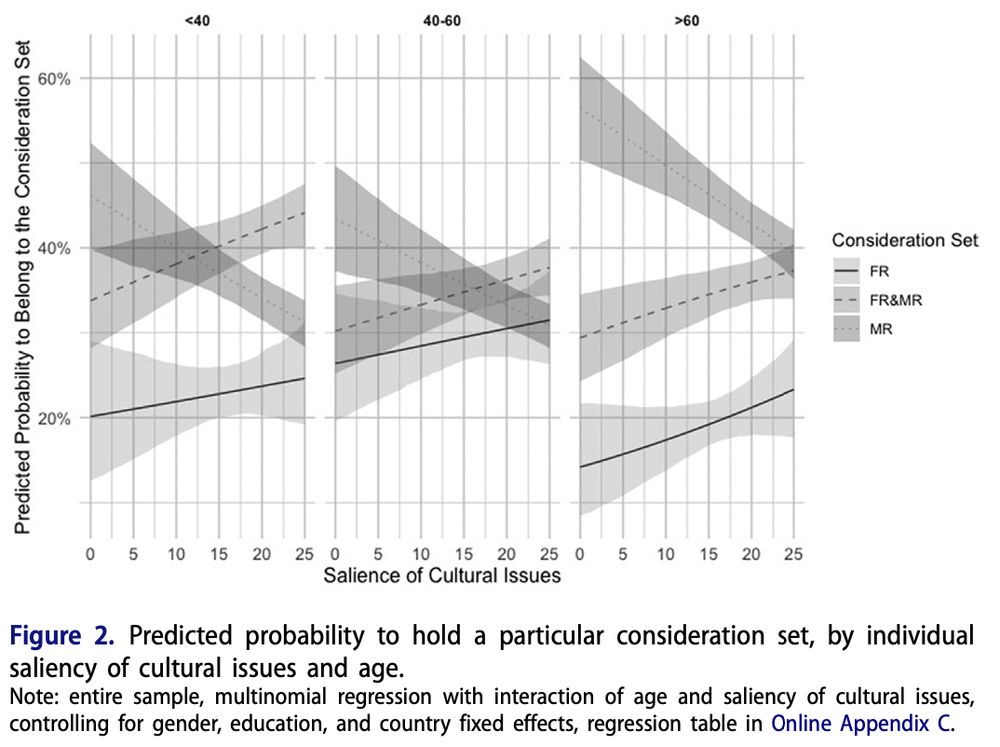
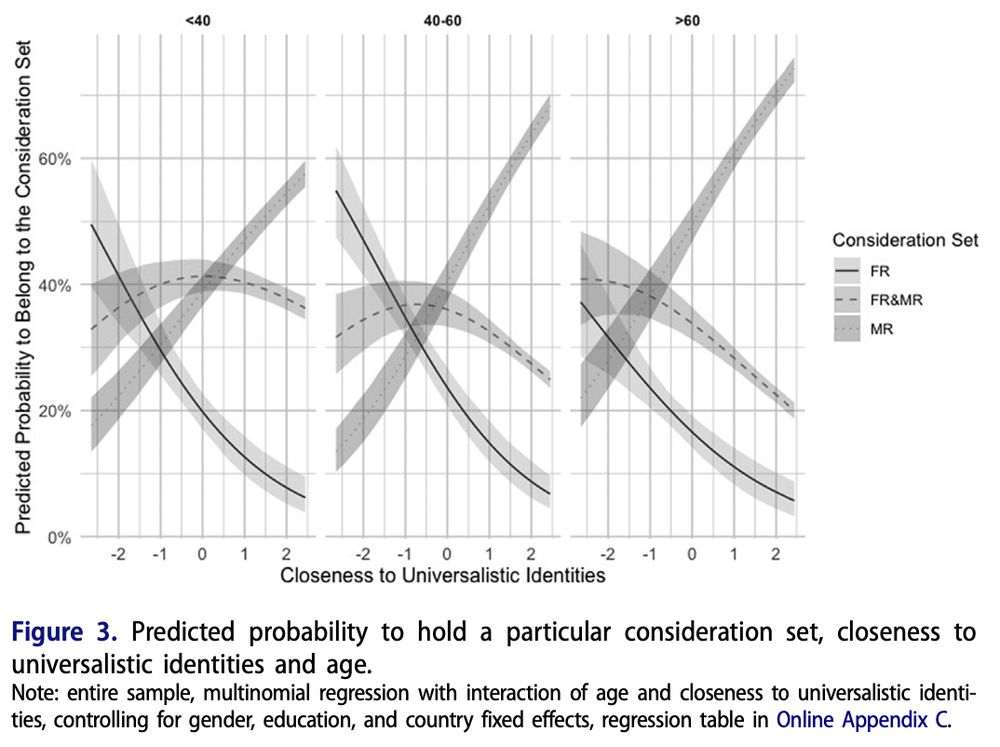

July 8, 2025 at 11:06 AM
Unsurprisingly,
• the more salient cultural issues are to voters and…
• the more particularistic their identities…
the more likely they are to consider voting for far right parties. This pattern is similar across age groups, but weakest for the elderly.
3/7
• the more salient cultural issues are to voters and…
• the more particularistic their identities…
the more likely they are to consider voting for far right parties. This pattern is similar across age groups, but weakest for the elderly.
3/7
How much competition within the right field?
❗Segmentation is eroding, especially among young voters❗
New article out by @siljahausermann.bsky.social @dpzollinger.bsky.social
@mrsteenbergen.bsky.social and myself
@ipz.bsky.social @wepsocial.bsky.social
tinyurl.com/ycxfx2aj
A short 🧵
1/7
❗Segmentation is eroding, especially among young voters❗
New article out by @siljahausermann.bsky.social @dpzollinger.bsky.social
@mrsteenbergen.bsky.social and myself
@ipz.bsky.social @wepsocial.bsky.social
tinyurl.com/ycxfx2aj
A short 🧵
1/7
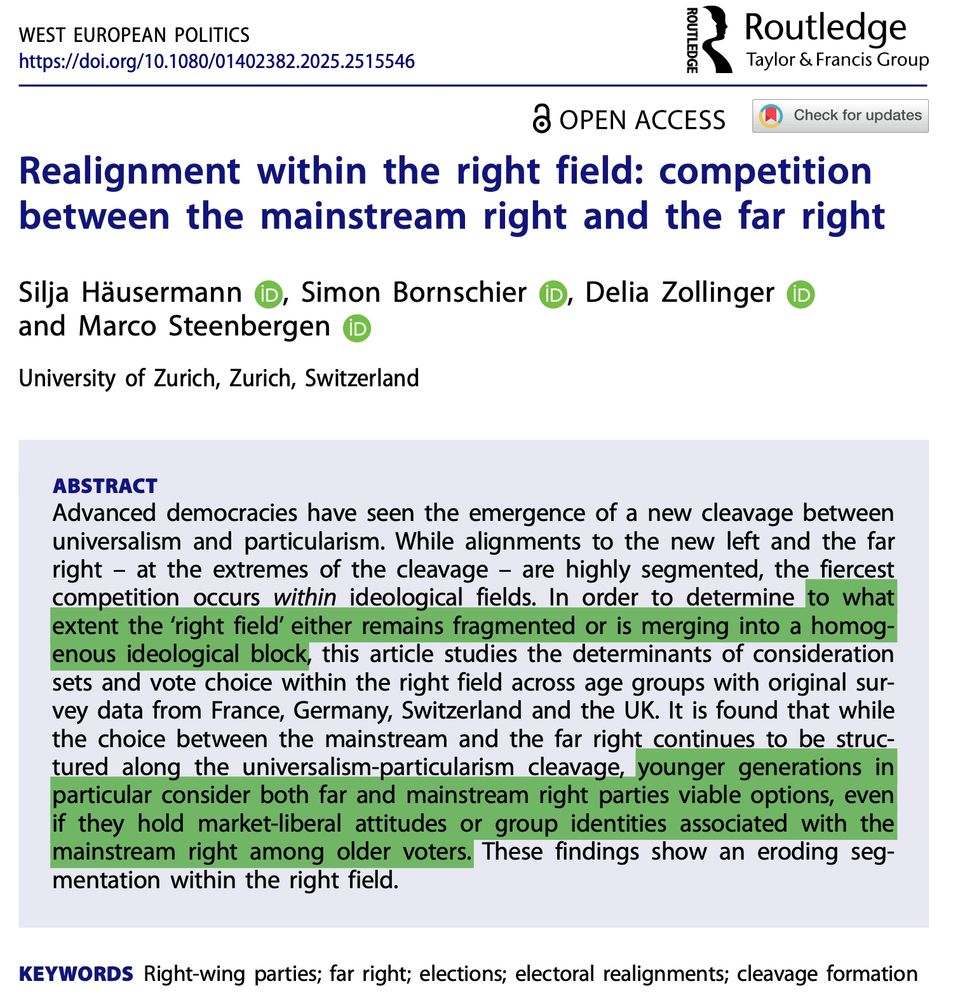
July 8, 2025 at 11:04 AM
How much competition within the right field?
❗Segmentation is eroding, especially among young voters❗
New article out by @siljahausermann.bsky.social @dpzollinger.bsky.social
@mrsteenbergen.bsky.social and myself
@ipz.bsky.social @wepsocial.bsky.social
tinyurl.com/ycxfx2aj
A short 🧵
1/7
❗Segmentation is eroding, especially among young voters❗
New article out by @siljahausermann.bsky.social @dpzollinger.bsky.social
@mrsteenbergen.bsky.social and myself
@ipz.bsky.social @wepsocial.bsky.social
tinyurl.com/ycxfx2aj
A short 🧵
1/7
Party systems have undoubtedly become more volatile and fragmented. Seeing the underlying stability in political behavior and the similarities across countries it produces requires focusing on voter alignments to ideological blocks, rather than individual parties.
7/8
7/8
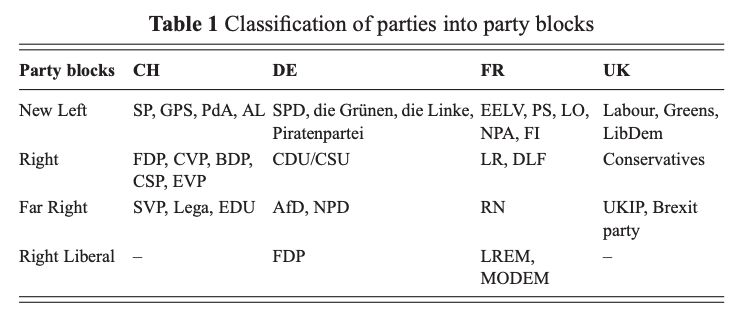
February 7, 2025 at 9:06 AM
Party systems have undoubtedly become more volatile and fragmented. Seeing the underlying stability in political behavior and the similarities across countries it produces requires focusing on voter alignments to ideological blocks, rather than individual parties.
7/8
7/8
But when parties talk about issues related to the universalism-particularism cleavage (for example, gender equality, LGBTQI+ rights, immigration, or the EU), they speak to group identities that are widely shared in certain social structural groups.
6/8
6/8
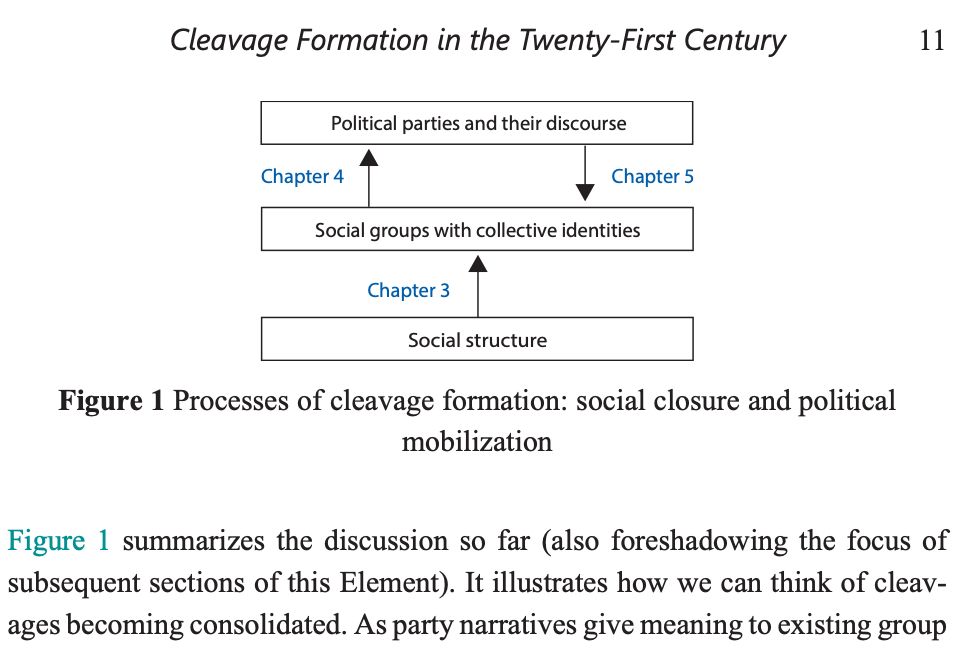
February 7, 2025 at 9:05 AM
But when parties talk about issues related to the universalism-particularism cleavage (for example, gender equality, LGBTQI+ rights, immigration, or the EU), they speak to group identities that are widely shared in certain social structural groups.
6/8
6/8
We started out with a puzzle: Political sociology shows that party preferences remain firmly anchored in social class, urban-rural residency, and, above all, education. Yet parties rarely appeal to these groups directly nowadays, and political behavior appears rather individualistic.
5/8
5/8
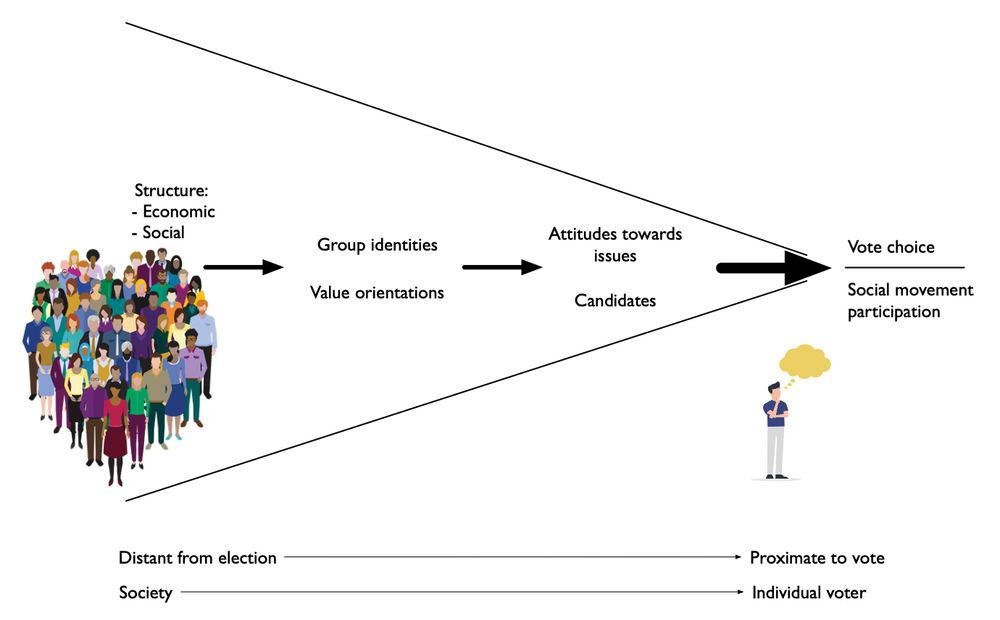
February 7, 2025 at 9:05 AM
We started out with a puzzle: Political sociology shows that party preferences remain firmly anchored in social class, urban-rural residency, and, above all, education. Yet parties rarely appeal to these groups directly nowadays, and political behavior appears rather individualistic.
5/8
5/8
Yet, these identities do have structural roots, just like class identities did in the past.
3/8
3/8
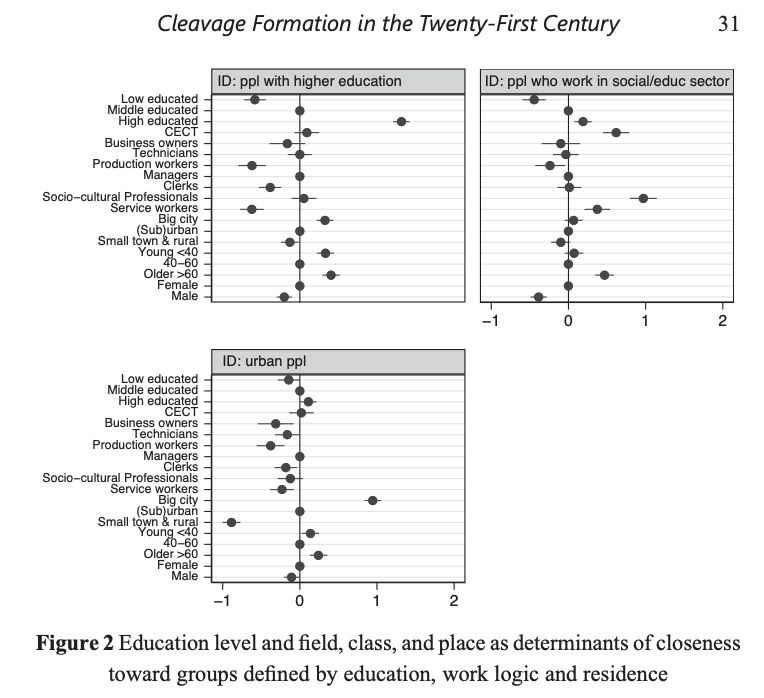
February 7, 2025 at 9:04 AM
Yet, these identities do have structural roots, just like class identities did in the past.
3/8
3/8
Today, feeling close to cosmopolitans or feminists separates voters of the New Left from those of the Far Right who identify with people who are down to earth and hard working. Our evidence is based on original surveys fielded in four West European countries.
2/8
2/8
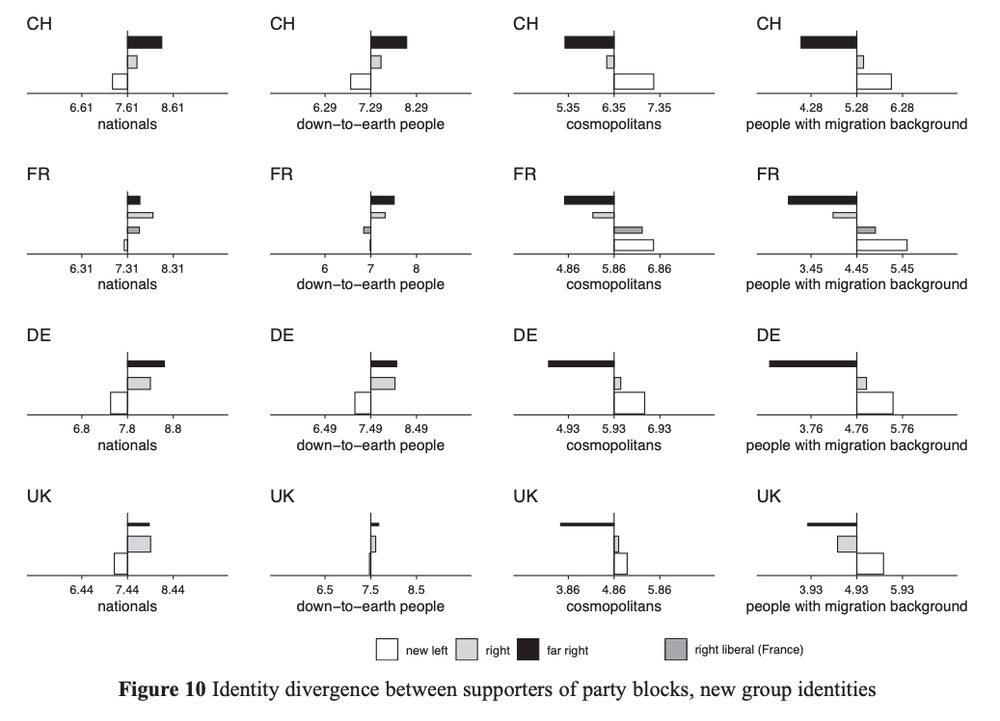
February 7, 2025 at 9:03 AM
Today, feeling close to cosmopolitans or feminists separates voters of the New Left from those of the Far Right who identify with people who are down to earth and hard working. Our evidence is based on original surveys fielded in four West European countries.
2/8
2/8

